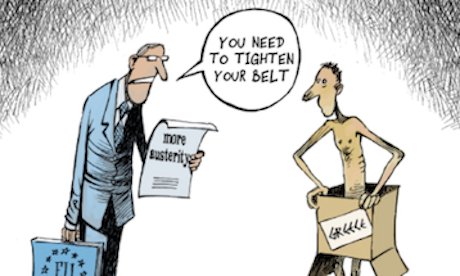Jacinda Ardern says neoliberalism has failed, as does former National Party Prime Minister Jim Bolger.
“Any expectation that we just simply allow that the market to dictate our outcomes for people is where I would want to make sure that we were more interventionist,” Ardern told Radio New Zealand.
So what is neoliberalism?
As colleague Henry Cooke put it: “neoliberalism traditionally describes the political shift in the 1980s towards privatisation of government services, a focus on individual freedoms over collective good, and a general glorification of market principles”.
Laissez-faire (let them do as they choose) was in, and intervention became something of a dirty word.
As well as rewarding individual toil, proponents believed that greater wealth creation by some would, as if by magic, trickle down to the less fortunate, and on average people would be better off.
Plenty argue it came off the boil in the 1990s and has never really recovered. Some on the Right claim a neoliberal agenda exists only in the minds of the Left, used as a term of disparagement.
When did it arrive in New Zealand?
While the Closer Economic Relations treaty between New Zealand and Australia came into force in 1983 (the significance of which is often overlooked in market reform terms), New Zealanders generally agree the 1984-90 Labour Government was the real start of neoliberalism.
Subsidies were broadly eliminated from most industries, dozens of state-owned companies were sold and the financial sector underwent major market reforms, including the free floating of the dollar.
GST of 10 per cent was slapped on the cost of practically everything and the top income tax rate, of 66 cents in the dollar, was halved over two years.
Later, under National, labour relations saw dramatic changes with the Employment Contracts Act, passed in 1990. Welfare payments were cut. University fees were hiked and have risen since. Continue reading
Sources
- Stuff article by Hamish Rutherford, Wellington business bureau chief at Fairfax Media
- Image: Independent Australia
News category: Features.




